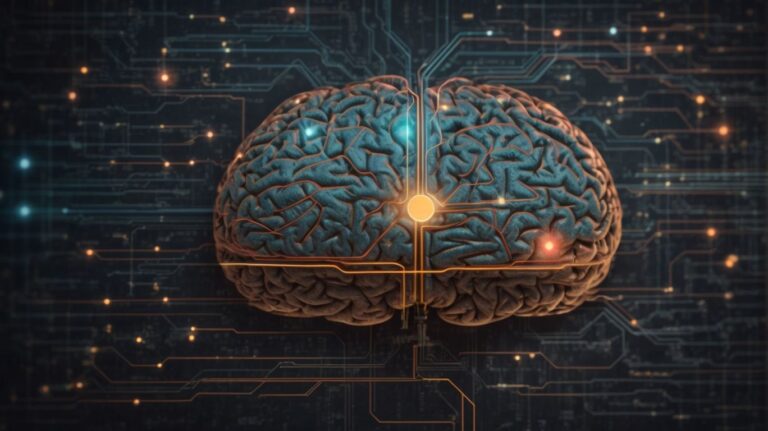Cognitive psychology is a fascinating field that delves into how the mind works, exploring key frameworks such as the Information Processing Model, Parallel Distributed Processing Model, and Levels of Processing Model.
This article will take you through the functions of cognitive psychology, including perception, attention, memory, language, problem solving, decision making, learning, and intelligence. We will explore how cognitive psychology contributes to other fields such as education, business and marketing, law and criminal justice, and medicine and health.
Join us as we explore the intricacies of cognitive psychology and its impact on various aspects of our lives.
Contents
- 1 What is Cognitive Psychology?
- 2 What are the Key Frameworks of Cognitive Psychology?
- 3 What are the Functions of Cognitive Psychology?
- 4 How Does Cognitive Psychology Contribute to Other Fields?
- 5 Frequently Asked Questions
- 5.1 What is cognitive psychology?
- 5.2 What is the framework of cognitive psychology?
- 5.3 What are the main functions of cognitive psychology?
- 5.4 How does cognitive psychology differ from other branches of psychology?
- 5.5 How does cognitive psychology contribute to real-world applications?
- 5.6 What are some current research topics in cognitive psychology?
What is Cognitive Psychology?
Cognitive psychology is a branch of psychology that focuses on the study of mental processes such as attention, language, memory, perception, and problem-solving.
Cognitive psychology seeks to understand how people acquire, process, store, and retrieve information. It delves into the intricacies of cognitive processes like decision-making, reasoning, and intelligence. By examining these mental functions, cognitive psychologists aim to comprehend how individuals perceive, think, and act in various situations.
One of the primary goals of cognitive psychology is to explore memory formation and retrieval mechanisms, investigating how we encode, store, and recall information. This field often contrasts with the principles of behaviorism, emphasizing the internal mental processes that influence behaviors rather than just observable actions.
What are the Key Frameworks of Cognitive Psychology?
Cognitive psychology encompasses several key frameworks, including the information processing model, cognitive neuropsychology, and the cognitive revolution that reshaped the understanding of human cognition.
The information processing model is a prominent framework in cognitive psychology that views the mind as similar to a computer, processing information through stages like input, storage, and output. This model has been instrumental in explaining how humans perceive, encode, store, and retrieve information.
On the other hand, the cognitive revolution marked a turning point in psychology by emphasizing the importance of internal mental processes and challenging behaviorism. It led to the development of cognitive neuroscience, which explores the neural mechanisms underlying cognition through advanced experimental methods.
Information Processing Model
The information processing model in cognitive psychology draws parallels between human cognition and computer operations, emphasizing the role of controlled experiments in understanding cognitive processes.
The information processing model consists of several key components that mirror computational processes in computers, such as sensory memory, short-term memory, long-term memory, and retrieval processes. These components work together to encode, store, retrieve, and manipulate information, much like a computer system.
Experimental methods in cognitive psychology, similar to debugging in computing, involve utilizing tasks to measure cognitive processes, analyze performance data, and infer underlying mental mechanisms. This approach allows researchers to test and refine cognitive models, just as coders tweak algorithms to enhance computer program efficiency.
Parallel Distributed Processing Model
The parallel distributed processing model explores cognitive processes through interconnected networks, contributing to the development of cognitive theory and understanding complex mental activities.
At the core of this model lies the utilization of neural networks that mimic the interconnected structure of the brain. These networks allow for simultaneous processing of information distributed across various nodes, enabling parallel computation and enhancing efficiency in processing complex tasks.
By simulating the brain’s function, parallel distributed processing sheds light on the mechanisms underlying cognitive functions such as learning, memory, and decision-making. This approach aligns with the principles of cognitive neuroscience, offering valuable insights into how brain structures and processes interact to support thought and behavior.
Levels of Processing Model
The levels of processing model in cognitive psychology emphasizes the depth of cognitive processing, highlighting mediational processes and the creation of cognitive maps for information storage.
When information is processed at a deeper level, it leads to stronger and more enduring memory traces, compared to shallow processing. This model posits that encoding information through semantic analysis leads to better retention, as it involves making meaningful connections and associations with existing knowledge.
Studies have shown that the depth of processing impacts how information is stored in memory, influencing recall and recognition. Cognitive maps, which are mental representations of spatial relationships or information, play a crucial role in navigation, memory retrieval, and problem-solving.
What are the Functions of Cognitive Psychology?
Cognitive psychology delves into various functions such as perception, attention, memory, and language, analyzing how individuals process and interpret information.
Perception involves the way individuals organize and interpret sensory information, influencing their understanding of the world around them. Attention plays a crucial role in determining which stimuli are processed further and which are disregarded. Memory processes help individuals store, retrieve, and recall information, shaping their experiences and influencing decision-making. Language processes involve the encoding, decoding, understanding, and production of verbal and non-verbal communication. Neural activity underlies all these cognitive functions, with facial expressions serving as external manifestations of internal cognitive processes, reflecting emotions, intentions, and social interactions. Cognitive distortions can skew individuals’ perceptions, leading to biased thinking patterns and emotional responses.
Perception
Perception in cognitive psychology concerns the interpretation of environmental stimuli, including visual perception and the analysis of facial expressions for emotional cues.
Neural activity plays a crucial role in processing these stimuli, as the brain receives, organizes, and interprets sensory information through complex neuronal pathways.
Scientific research has delved into understanding how the brain constructs cognitive maps based on these inputs, enabling individuals to navigate and interact with their surroundings efficiently. Facial expressions, such as a smile or a frown, are decoded through intricate neural mechanisms that involve regions like the amygdala and prefrontal cortex, highlighting the intricate connections between perception, emotion, and cognition.
Attention
Attention is a vital function in cognitive psychology, involving cognitive load management and measuring brain activity through techniques like EEG for studying attentional processes.
Attention plays a crucial role in various cognitive processes, as it allows individuals to focus on specific stimuli while filtering out distractions. In the context of cognitive load management, attention helps regulate the amount of information processed, preventing cognitive overload.
Understanding how attention functions can provide insights into brain function and cognitive distortions, which are essential in cognitive behavioral therapy. EEG applications offer a non-invasive method to monitor brain activity in real-time, allowing researchers to observe changes in attention and cognitive processes. By analyzing EEG data, scientists can gain valuable information about the neural mechanisms underlying attentional tasks.
Memory
Memory in cognitive psychology encompasses the storage and retrieval of information, with cognitive models providing insights into memory formation and recall processes.
When looking deeper into the mechanisms of memory, it is crucial to understand the intricate processes involved in encoding and retrieval. Encoding involves the initial processing of information into the memory system, where it is transformed into a construct that can be stored. On the other hand, retrieval refers to the process of accessing stored information when needed. These processes are closely linked to brain health and play a significant role in cognitive disorders.
Studying memory from a cognitive neuroscience perspective allows researchers to explore the complex interplay between brain structures and functions in memory formation and recall.
Language
Language in cognitive psychology involves the study of linguistic processes, cognitive theory application to language acquisition, and the role of information communication in language understanding.
Social learning theory plays a significant role in language development, suggesting that individuals acquire language through observation and imitation of others. This theory highlights the importance of social interactions in shaping our linguistic abilities. The advancements in artificial intelligence have provided new insights into language processing mechanisms, allowing researchers to explore how machines can comprehend and generate human language. Understanding how the brain processes information to decipher language is crucial in unraveling the complexities of linguistic comprehension and production.
Problem Solving
Problem-solving in cognitive psychology involves cognitive processes such as planning, reasoning, and decision-making, with cognitive maps aiding in spatial and logical problem-solving strategies.
Cognitive processes play a crucial role in how individuals approach and tackle problems. When faced with a complex issue, the brain engages in planning to outline a series of steps to reach a solution. Reasoning allows for logical thinking and the evaluation of different options, while decision-making involves selecting the most suitable course of action. Cognitive maps, mental representations of spatial relationships, assist in navigating physical spaces and organizing information effectively.
Decision Making
Decision-making in cognitive psychology encompasses neuroscientific perspectives, behavioral economics principles, and cognitive processes that influence choices and risk assessment.
The cognitive revolution in the 20th century brought about a paradigm shift in understanding how the mind operates, shedding light on previously unexplored aspects of decision-making. Through cognitive neuroscience, researchers delve into the black box of the brain, unraveling the intricate mechanisms that underlie our choices. By studying neural pathways, brain regions, and neurotransmitters, scientists can pinpoint the neural correlates of decision-making processes.
Learning
Learning in cognitive psychology involves cognitive therapy techniques, influences academic performance, and shapes adaptive behaviors through personalized learning strategies.
Understanding how traumatic experiences can shape cognitive models is essential in cognitive therapy. By targeting and reframing cognitive distortions stemming from trauma, individuals can develop healthier thought patterns and behaviors. This, in turn, can lead to improvements in academic performance as the cognitive restructuring process enhances critical thinking skills and problem-solving abilities. Through the application of cognitive approaches, individuals can learn to recognize and challenge maladaptive beliefs, fostering positive changes in both academic performance and behavior.
Intelligence
Intelligence studies in cognitive psychology explore cognitive models of intelligence, cognitive processes underlying problem-solving skills, and the neurological basis of cognitive abilities.
This field of research has significantly evolved over the years, particularly with the cognitive revolution that shifted the focus from behaviorism to internal mental processes. Researchers in cognitive psychology delve into how various cognitive functions, such as memory, attention, language, and reasoning, contribute to overall intelligence. Understanding the correlation between cognitive processes and problem-solving abilities has practical implications in education, artificial intelligence development, and even everyday decision-making.
How Does Cognitive Psychology Contribute to Other Fields?
Cognitive psychology significantly impacts various fields such as education, business, marketing, law, medicine, and health by providing insights into human cognition and behavior.
One of the primary areas where cognitive psychology plays a crucial role is in education. By understanding how individuals learn, retain information, and problem-solve, educators can tailor their teaching methods to optimize learning outcomes.
In business, cognitive psychology aids in understanding consumer behavior, decision-making processes, and effective communication strategies. This knowledge is invaluable for creating successful marketing campaigns and fostering customer loyalty.
In the realm of medicine, cognitive psychology contributes to the diagnosis and treatment of cognitive disorders by exploring the underlying mechanisms of conditions such as Alzheimer’s and ADHD. By studying how environmental stimuli influence cognitive processes, professionals can develop innovative interventions to improve cognitive functioning and overall well-being.
The field of cognitive neuroscience merges insights from psychology, neuroscience, and other disciplines to unravel the intricate workings of the human brain, paving the way for groundbreaking discoveries in fields ranging from education to healthcare.
Education
In education, cognitive psychology informs teaching practices, curriculum development, and cognitive therapy interventions to enhance student learning, memory retention, and academic success.
Cognitive psychology plays a crucial role in understanding how students process and retain information, leading to the implementation of effective learning strategies. By looking into the intricacies of cognitive processes, educators can tailor their teaching methods to optimize comprehension and knowledge retention.
The integration of cognitive psychology principles in education enables educators to identify and address cognitive distortions that may hinder a student’s academic performance. By recognizing how environmental stimuli can impact learning outcomes, teachers can create supportive environments that cater to individual learning styles and abilities.
Business and Marketing
Cognitive psychology influences business and marketing strategies through cognitive neuroscience research, analyzing consumer behaviors, decision-making processes, and advertising effectiveness.
By understanding how individuals process and interpret information social learning theory and information theory play a significant role in shaping marketing campaigns and business decisions. Social learning theory expounds on how people observe, imitate, and learn from others, which can be utilized to create successful advertising strategies that resonate with consumers.
Information theory delves into how information is communicated, stored, and processed, aiding marketers in crafting messages that capture attention effectively. Cognitive psychology, with its focus on perception, memory, and attention, offers valuable insights into consumer perceptions and preferences, allowing businesses to tailor their strategies to meet specific needs.
Law and Criminal Justice
In law and criminal justice, cognitive psychology aids in understanding witness testimonies, jury decision-making, and forensic investigations by examining cognitive processes, memory accuracy, and cognitive biases.
One of the notable applications of cognitive psychology in legal contexts is the study of memory reliability. Memory plays a crucial role in witness testimony and the accuracy of recalled events can greatly impact legal proceedings. Cognitive psychologists, such as Alfred Yarbus, have extensively researched the factors affecting memory recall, shedding light on the intricacies of human memory processes.
Medicine and Health
Cognitive psychology contributes to medicine and health by investigating cognitive disorders, emotional regulation, and trauma responses to develop effective treatments and enhance patient care.
One crucial aspect of cognitive psychology in healthcare is its emphasis on understanding cognitive distortions, which are faulty ways of thinking that can exacerbate mental health issues. By addressing these distortions through therapies such as cognitive behavioral therapy (CBT), healthcare providers can help individuals reframe their thoughts and behaviors to improve their overall well-being.
Cognitive psychology also plays a key role in managing cognitive load in patients with cognitive disorders. Healthcare professionals utilize techniques to simplify information, break down complex tasks, and optimize the environment to reduce cognitive strain and improve patient comprehension and adherence to treatment regimens.
Frequently Asked Questions
What is cognitive psychology?
Cognitive psychology is a branch of psychology that focuses on the study of mental processes such as perception, attention, memory, language, and problem-solving.
What is the framework of cognitive psychology?
The framework of cognitive psychology is based on the idea that mental processes can be studied scientifically by using a combination of behavioral experiments and cognitive neuroscience techniques.
What are the main functions of cognitive psychology?
The main functions of cognitive psychology include understanding how we perceive, think, and remember information, as well as how we use this information to make decisions and solve problems.
How does cognitive psychology differ from other branches of psychology?
Cognitive psychology differs from other branches of psychology, such as social psychology or developmental psychology, in its focus on mental processes rather than external behaviors.
How does cognitive psychology contribute to real-world applications?
Cognitive psychology has many practical applications, such as improving memory and learning techniques, developing effective problem-solving strategies, and treating mental disorders.
What are some current research topics in cognitive psychology?
Current research in cognitive psychology includes topics such as decision-making processes, the effects of technology on cognition, and the role of emotions in cognitive processes.




